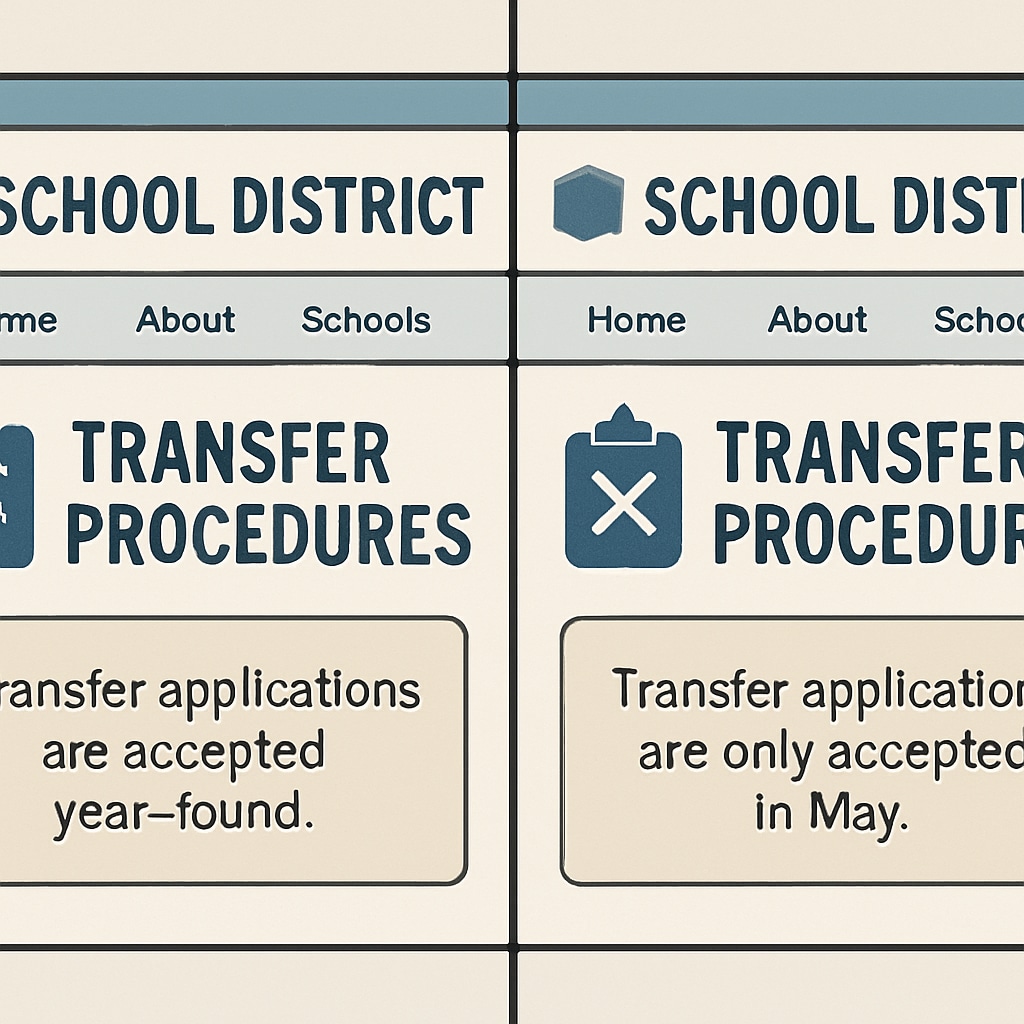“School district discrimination, school choice, and inter-district communication” often create invisible barriers for families seeking better educational opportunities. When bureaucratic inefficiencies and territorial attitudes between districts collide, students bear the consequences through delayed or denied transfers.

Research from the U.S. Department of Education reveals that 32% of transfer requests face unnecessary processing delays due to poor inter-district coordination.
The Hidden Mechanics of Transfer Obstruction
Three systemic factors commonly disrupt student mobility:
- Information asymmetry: Sending districts frequently withhold complete academic records
- Procedural inconsistencies: Varying deadlines and documentation requirements between districts
- Resource protectionism: Some districts actively discourage outbound transfers to maintain funding levels
The National Center for Education Statistics confirms these practices disproportionately affect low-income families and students with special needs.

Empowering Families Through Strategic Action
Parents encountering transfer resistance should:
- Request all communication in writing under FERPA (Family Educational Rights and Privacy Act)
- Create a paper trail by documenting every interaction with date/time stamps
- Leverage state-level appeals processes when local decisions seem arbitrary
For example, California’s District of Choice program demonstrates how standardized transfer protocols can reduce discrimination.
Policy Levers for Systemic Change
Advocates recommend these structural reforms:
- Mandating uniform transfer windows across neighboring districts
- Establishing neutral third-party arbitration for disputed cases
- Implementing financial incentives for districts accepting transfer students
Such measures could transform inter-district communication from a barrier into a bridge for educational equity.


